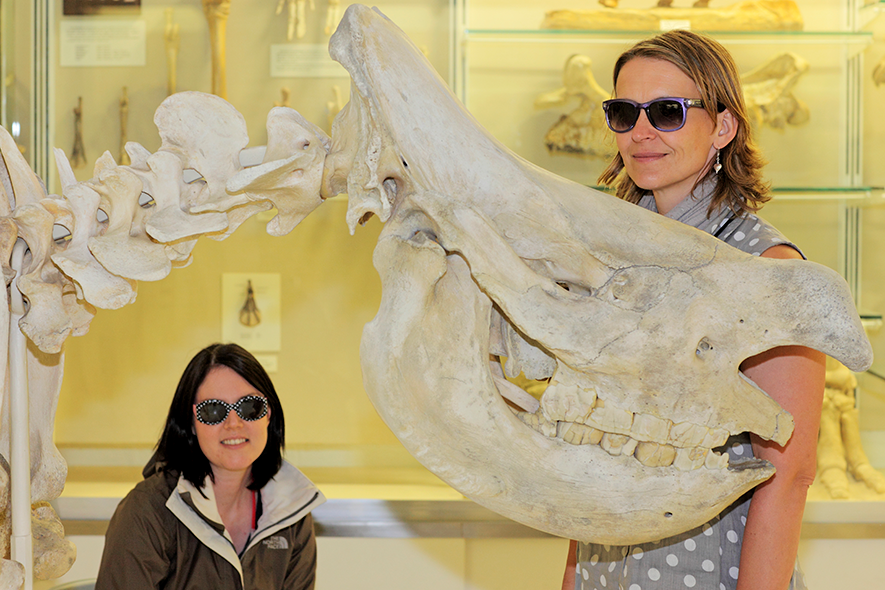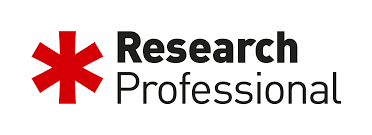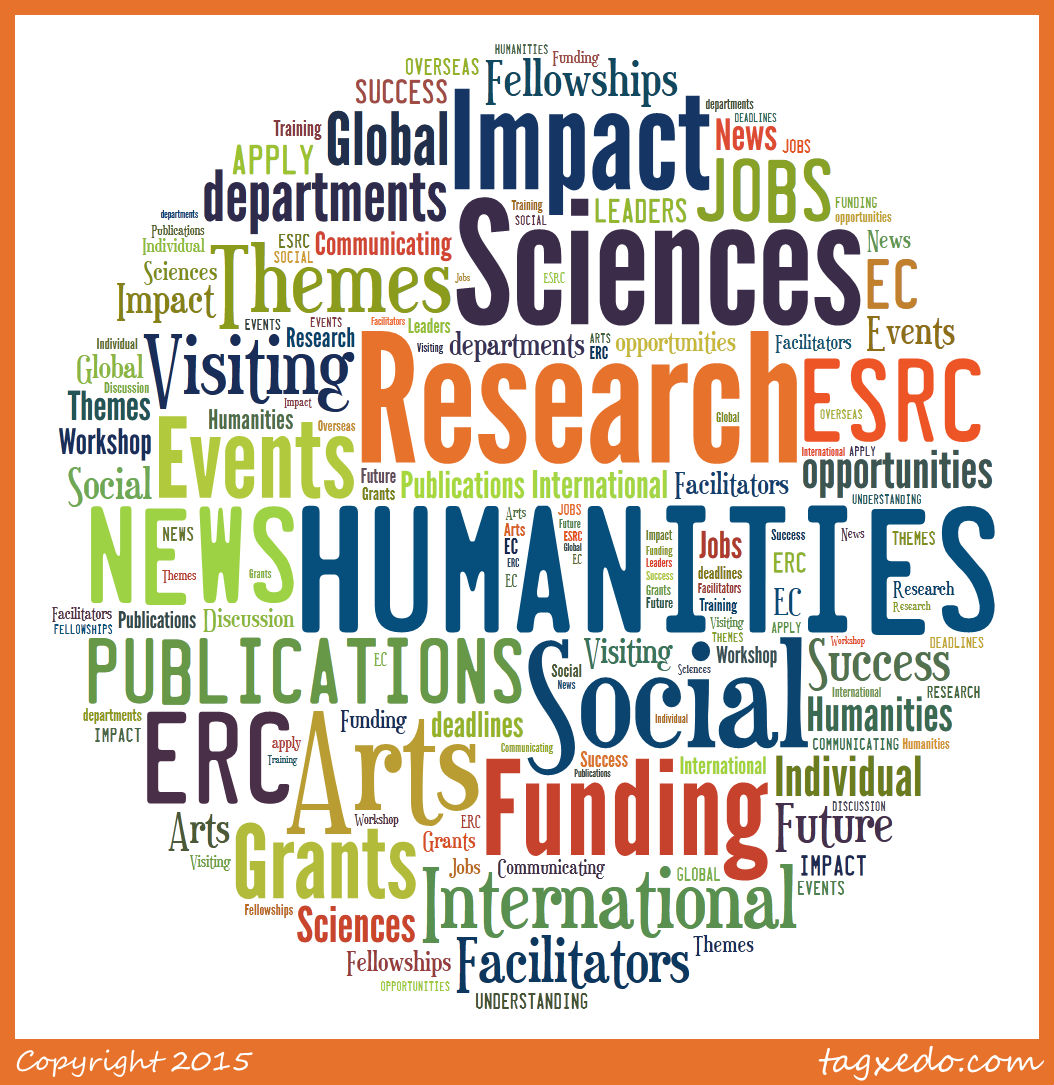Fellowships for Early Career Researchers
Postdoctoral and early career fellowships are often thought of as short-term posts designed to help with the development of an academic career.
Fellowships and grant funding require institutional support, which means that you will need to talk to your head of faculty/department at an early stage, in order to discuss the type of support the faculty/department can provide. It is important to make sure that whoever is hosting you is aware of what kind of support the funder is expecting the host institution to provide.
As part of the Early Career Researcher Toolkit, the SRF Team has created A Brief Guide that offers a brief overview of funding available. The information on the various schemes summarised here has been mostly gathered from the funding institutions’ websites, and is intended to be a starting point for your own research on the topic.
AHRC Responsive Mode: Catalyst Award
Funding: Between £100,000 and £300,000 at 100% full economic costs (fEC)
Duration: Up to five years in duration
Purpose: AHRC will launch awards to support researchers without prior experience of leading a significant research project, with the aim of accelerating their trajectory as independent researchers and build leadership experience.
The awards will provide applicants with an opportunity to support their own skill development and the skill development of research staff employed on the award.
Eligibility: Eligibility is determined on the basis of funding history at point of submitting your application.
You cannot be a current or former project lead on AHRC or other UKRI research grants or fellowship grants at point of application, except:
- doctoral training awards (any)
- early career fellowships (any)
- AHRC Research Networking (or equivalent)
- AHRC Curiosity Awards
- AHRC Small Grants in the creative and performing arts
- AHRC Research Grants Practice Led and Applied
- institutional lead on a UKRI Impact Accelerator Award (IAA)
- researcher lead/recipient of an AHRC Impact Accelerator Award (IAA)
You cannot be a current or former project lead on research grants or fellowship grants from any other funder, with the exception of awards that reasonably meet the aims of the above list.
Contact Anna Cieslik for more information.
British Academy Postdoctoral Fellowship
Funding: Around £250,000 at 80 per cent full economic cost (fEC) for research expenses and salary.
Duration: Three years.
Timetable: Annual Competition with deadline for submission of outline proposals in early October. Results of outline stage expected in January (invitation to submit full application) for research beginning on or after 1 September. Please check the website for the yearly deadlines.
Eligibility: Applicants must be within three years of the award of their doctorate.
Purpose: This scheme is designed to enable outstanding early career researchers to strengthen their experience of research and teaching in a university environment, which will develop their CV and improve their prospects of obtaining permanent lecturing posts by the end of the Fellowship. Applicants are expected to be at an early stage of their academic career.
For Cambridge-based applications, some Departments may elect to run a shortlisting competition with a deadline in August/September. Please ask for guidance in your respective Department.
Number of fellowships: Up to 45 awards to be made for research starting in 2025.
Contact Anna Cieslik for more information.
Leverhulme Trust Early Career Fellowships
Funding: The Trust will contribute 100% of each Fellow’s total salary costs up to a maximum of £50,000 in year one of the award. The Trust will then contribute 50% of the Fellow’s total salary costs up to a maximum of £25,000 in years two and three, with the balance to be paid by the host institution. The Trust’s maximum annual contribution will be pro-rated if the Fellowship is held on a part-time basis. Each Fellow may request up to £6,000 per annum in research expenses to further his or her research activities.
Duration: Three years (may be held part-time),
Timetable: Annual deadline in early March of each year. Application materials can be accessed from the Trust’s website from January. The Trust will report results to applicants by the end of May.
Eligibility: Applications are invited from those with a doctorate who had their doctoral viva not more than 4 years before the application closing date. Career breaks will be taken into account. They may not currently hold, or have already held, a full-time established (i.e. permanent) academic position in a UK university or comparable institution in the UK or a fellowship for independent research of equivalent duration to the Leverhulme Early Career Fellowship. This would exclude current holders of British Academy Postdoctoral Fellowships or Junior Research Fellowships of three years duration, for example.
Purpose: Early Career Fellowships aim to provide career development opportunities for those who are at a relatively early stage of their academic careers but with a proven record of research. It is anticipated that a Fellowship will lead to a more permanent academic position. Fellowships can be held at universities or at other institutions of higher education in the UK.
For Cambridge-based applications, there is a pre-selection competition run by the Isaac Newton Trust, which provides the match funding for successful applicants. You must apply to the Newton Trust before submitting your application to the Leverhulme Trust, and you need to secure the support of a host department before approaching the Newton Trust. The Newton Trust deadline for applications is in November and potential applicants are strongly advised to check details with the Newton Trust directly.
Number of fellowships: There are approximately 100 fellowships available each year.
Contact Anna Cieslik for more information.
Please follow this link for further information on the scheme and how to apply through University of Cambridge.
Contact Elizabeth Penner for more information.
Gerda Henkel Foundation: Research Scholarships
Funding: There is no maximum funding level given, though applications tend to be around €100,000 per project.
*Please be aware that researcher salaries are expected to by covered by the Foundation's stipends, which are lower than salaries set by the University. It is expected that the Department will need to either find or match-fund the difference. Details of what the Foundation does and does not cover.
Duration: Funding is for projects between 1 and 24 months.
Timetable: The Foundation committees usually hold their meetings twice a year: in June for a project start date in December, and November for a start date in May. Applications have to be in the Foundation's office by the deadline day. The date of the postmark is not valid. Smaller funding amounts (max. EUR 25,000) are granted by the Foundation through a simplified procedure with a deliberation time of approximately three to four months. Please follow the exact same application procedure for smaller funding amounts as for regular research scholarships.
Eligibility: Candidates can apply regardless of their nationality and place of work. Applications for research scholarships can only be made by Postdocs or scholars with Post Doctoral Lecture Qualification, which is equivalent to Senior Lecturer, Reader or Professor.
Purpose: The funding activities concentrate on German and foreign academics in the fields of historical humanities. Research projects in the following fields are supported in particular: Archaeology; History of Art; Historical Islamic Studies; History; History of Science; History of Law; Prehistory and Early History.
Since 2008 the Foundation has also increasingly addressed issues of great relevance to contemporary life and the future, above all as part of its special “Islam, the Modern Nation State and Transnational Movements” and “Security, Society and the State” programmes. As part of the Lisa Maskell Fellowships, since 2014 the Foundation has been supporting young scholars in the humanities in both Africa and Southeast Asia. Starting in 2015, the Foundation has with its “Patrimonies” funding initiative focused more strongly on the preservation of cultural heritage, specifically in regions experiencing crisis.
Contact Elizabeth Penner for more information.
Independent Social Research Foundation Early Career Fellowship
Funding: Up to £60,000 to buy-out the cost of all teaching and associated administration in the applicant’s home institution.
Duration: Up to 12 months.
Timetable: ISRF Early Career Fellowship competitions generally launch in January of odd-numbered years, with a mid-February deadline for applications.
Eligibility: Scholars from within Europe are eligible to apply – applicants should be within 10 years of PhD award, and they will normally have a permanent appointment at an institution of higher education and research.
Purpose: The awards are intended as providing full relief from all teaching duties and all associated academic administration for a period of (up to) one year; applications may be made by those whose sole or principal post is a part-time equivalent.
Contact Elizabeth Penner for more information.
Independent Social Research Foundation Independent Scholar Fellowships
Funding: The amount of an award depends on the nature of the work proposed and individual circumstances – the ISRF expects applications for grants up to a maximum of £28,750 (from July 2020). Within that sum, reasonable support for research expenses will be considered. Reasonable childcare or other domestic costs may be considered.
Duration: Up to 12 months.
Timetable: An annual competition with a deadline in mid-March.
Eligibility: For the purposes of this competition, an ‘Independent Scholar’ is understood as someone, whether or not currently in (non-academic) employment, who is engaged in intellectual work of a nature and standard comparable to that of a professional academic scholar. Applicants will usually hold a PhD but other equivalent academic or professional qualifications may be considered. Evidence of scholarly achievement at a sufficiently high level can include publications in academic journals, edited collections and monographs, as well as pieces for professional journals and the popular media.
Purpose: The awards are intended to support innovative research, which breaks with existing explanatory frameworks so as to address afresh empirical problems with no currently adequate theory or investigative methodology. Innovation may also come from controversial theoretical approaches motivated by critical challenge of incumbent theories. Projects ranging across the breadth of the social scientific disciplines and interdisciplinary research fields are welcome, and relevant applications from scholars working within the humanities are also encouraged.
The research proposed may include, but is not confined to: initiation of a project or of research level work intended to draw on or contribute to one of the professions, completion of a project, or preparation of an article or monograph for publication, based on existing work.
Contact Elizabeth Penner for more information.
Wellcome Trust Early Career Awards
Funding: Salary and up to £400,000 for research expenses
Duration: Usually 5 years, but may be less for some disciplines, and longer if held on a part-time basis
Timetable: Two rounds a year. Next deadline is 01 October 2024.
Eligibility: At the point you submit your application, you must have completed a substantive period of research training relevant to your discipline. You must have: completed a PhD (for example, in the life sciences) or an equivalent higher research degree, or at least four years' equivalent research experience (for example, in the humanities and social sciences). You may also have some postdoctoral experience in your proposed field of study, but generally no more than three years. When we review how much postdoctoral experience you have, we will allow for part-time work, career breaks and other significant amounts of time spent outside research, for example clinical training. You are not eligible to apply if: you have an existing tenured (salaried) post for the duration of the award; you are the lead applicant on another application and you are waiting for a decision (you can only submit one application to Wellcome at a time); you hold, or have held, an equivalent fellowship at this career stage. An equivalent fellowship does not include short-term funding.
Purpose: This scheme provides funding for early-career researchers from any discipline who are ready to develop their research identity. Through innovative projects, they will deliver shifts in understanding that could improve human life, health and wellbeing. By the end of the award, they will be ready to lead their own independent research programme.
Contact Anna Cieslik for more information.







